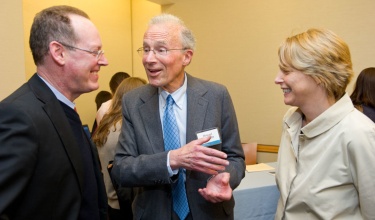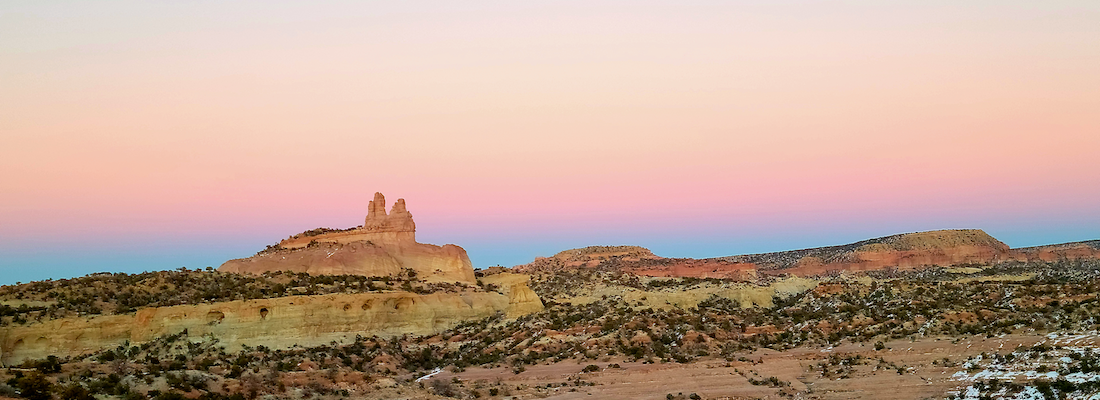

Navajo Nation
Navajo Nation
The largest Native American reservation in the United States, the Navajo Nation stretches from the rim of the Grand Canyon in the west to the peach orchards of Farmington, N.M., in the east; from empty highways around Holbrook, Ariz., in the south to the sandstone buttes of red rock Utah in the north. Traditionally marked by the four sacred mountains—Mt. Blanca to the east, Mt. Taylor to the south, the San Francisco Peaks to the west and Mt. Hesperus to the north—these 27,000 square miles have are the homelands of the Diné people.
Many of Navajo Nation’s 300,000 residents are fighting to maintain their tradition of self-sufficiency, especially regarding health. Take just diabetes. Historically, almost no Navajo suffered from it. But because of factors including the scarcity of wholesome groceries available within the Navajo Nation, one in three Navajo are now diabetic or pre-diabetic. In some regions, health care workers report diagnosing diabetes in every other patient.
Partners In Health was invited in 2009 to collaborate on strengthening the Navajo Nation’s health system and has since been fighting those inequities and others, through partnership with Community Outreach and Patient Empowerment, or COPE.
Our Impact
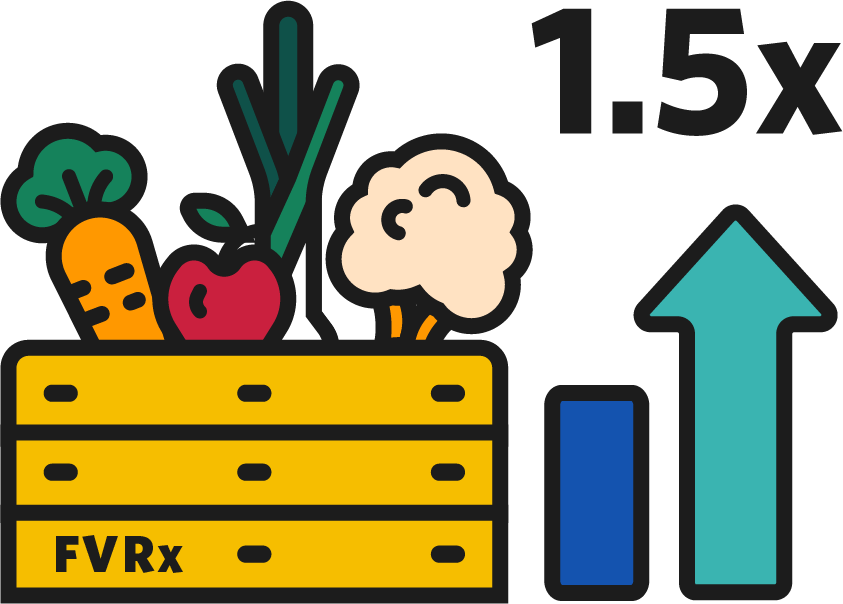
Local shoppers 1.5X more likely to buy fruits and vegetables at stores accepting FVRx.
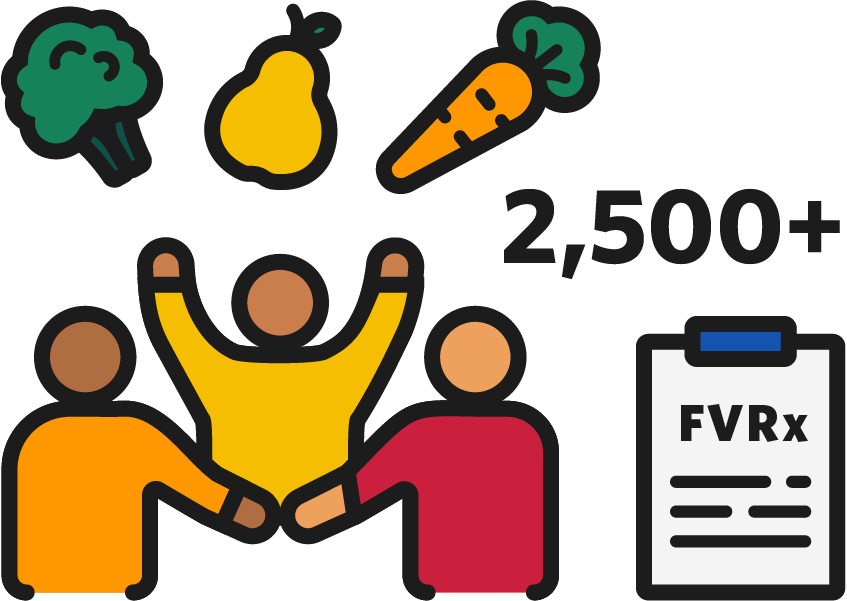
More than 2,500 people enrolled in FVRx; 35 stores providing healthier food options.
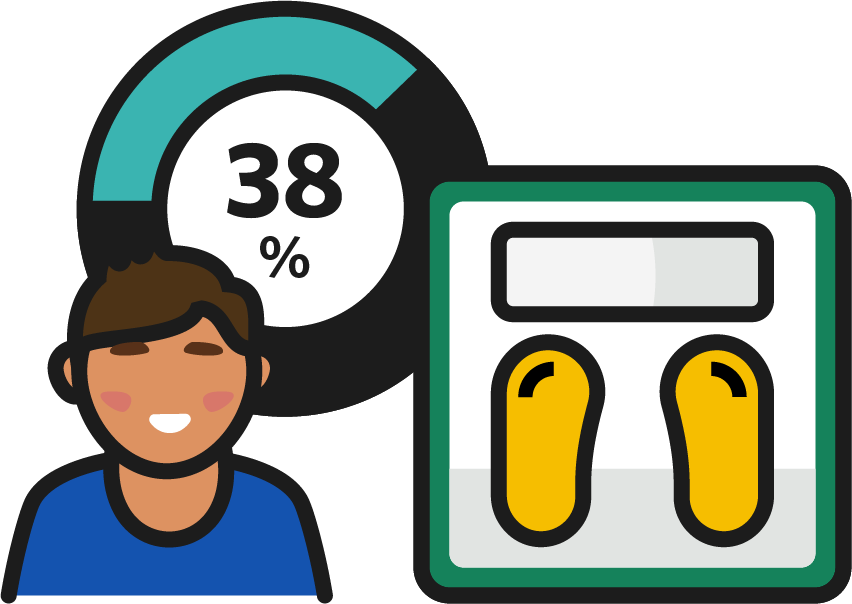
38% of children initially diagnosed overweight or obese met healthy weight criteria after completing FVRx.
Community Health Representatives
Navajo Nation Community Health Representatives, working under the Navajo Nation Department of Health, form the foundation of COPE’s work and the Navajo Nation’s health system. Roughly 100 representatives, trained as nursing assistants, have been consulting patients in their homes since the 1960s, forming one of the best-established community health worker programs in the nation. They help people young and old access medical resources, attend prenatal appointments, manage diabetes or high blood pressure, and much more.
In collaboration with local partners, COPE facilitates skill-building sessions, leadership workshops, certification trainings, and materials for patient visits, including visual and Diné language presentations designed for people who don’t speak English as a first language. All of these efforts focus on keeping patients connected to health care.
Healthy Food, Healthy Lives
COPE supports Navajo Nation’s ongoing movement to combat diet-related chronic diseases, such as diabetes, caused by the systematic destruction of traditional food systems and long-standing racist policies. With just 13 grocery stores in an area the size of West Virginia, gas station junk food is often the special of the day. COPE’s Food Sovereignty program partners with health care providers, local stores, local growers, and early childhood education centers to deepen community connections and strengthen healthy, food-secure families.
Working with health care providers across Navajo Nation, COPE has created the Fruit and Vegetable Prescription Program (FVRx), through which doctors prescribe fruits and vegetables to families with pregnant women or young children. Participants attend monthly health coaching sessions and receive vouchers, which they can redeem for fresh produce and traditional foods at local stores.
Through the Healthy Navajo Store Initiative (HNSI), COPE offers marketing, stocking, and voucher redemption support to small and local shops on Navajo Nation, During the COVID-19 pandemic, COPE has continued to build these relationships by responding to store-communicated needs for education materials, employee-training videos, masks, and hand sanitizer stations. COPE helps local grower groups connect with schools, clinics, and stores, and helps early education centers incorporate gardening and nutrition into their curricula.
All told, more than 1,700 people have benefited from FVRx food vouchers and education, and 85 percent of participants have met a goal of eating five servings of fruits and vegetables per day. After just six months in the program, nearly a third of children who initially were overweight met criteria for healthy weight.
Cancer Program
The COPE Cancer Program seeks to improve cancer outcomes through meaningful community engagement. Led by the lived experience of individuals and families affected by cancer on Navajo Nation, COPE’s Patient and Family Advisory Council, annual Cancer Survivorship Conference, and COPE Cancer Coalition work together to ensure that care, outreach, and education is patient-centered, coordinated, culturally relevant, and true to the voice of the community.
Guided by the Patient and Family Advisory Council, COPE has developed a set of recommendations for how to improve cancer care on Navajo Nation, and created and adapted education material. COPE also continues to provide communication and education opportunities that promote a positive approach to challenging and complex health conditions.
These efforts and more reflect COPE’s community-driven approach to supporting health care, healthy lives, and empowered communities on Navajo Nation.
Featured Navajo Nation Videos
To learn more about The COPE program, check out their website by clicking the button below:

